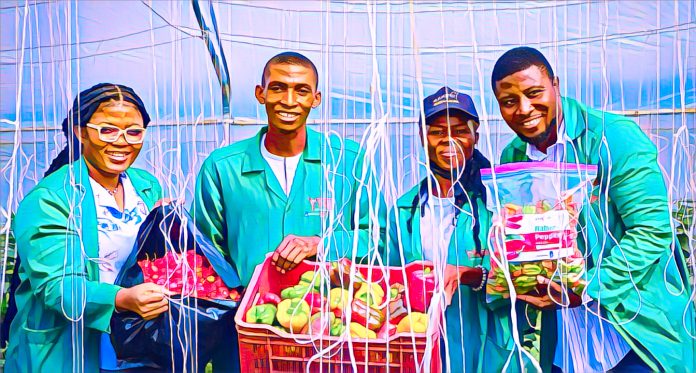KEY POINTS
- Gen Z farmers are using TikTok to showcase the unvarnished realities, technological integration, and deep purpose of modern agriculture, replacing outdated stereotypes with relatable, engaging content that demystifies food production.
- Through viral tutorials, transparent discussions, and niche hashtags like #FarmTok, these influencers are democratizing agricultural knowledge, fostering massive online communities of learners, and inspiring practical engagement (like urban gardening) among non-farming audiences.
- By portraying agriculture as a dynamic, tech-savvy, and purpose-driven career path, TikTok Farmers are actively changing perceptions, driving increased interest in agricultural education programs, and attracting a new, diverse generation of potential farmers equipped with digital skills and sustainability values.
Move over dance challenges and lip-syncs. Scrolling through TikTok, a surprising trend is taking root: Gen Z farmers, ranchers, and homesteaders are amassing millions of views, transforming dusty fields and bustling barns into viral content hubs.
Dubbed “TikTok Farmers,” these digital-native agriculturists aren’t just documenting their lives; they’re leveraging the platform’s algorithms to educate, advocate, and fundamentally reshape perceptions of an industry often seen as outdated. Forget the overalls stereotype – this is agriculture filtered through smartphone lenses, set to trending sounds.
Meet creators like Ellie Norris (@ellienorrisfarm), a 23-year-old cattle rancher in Oklahoma whose videos detailing calving season, cattle auctions, and the realities of ranch finances regularly garner hundreds of thousands of views.
Or Kaleb Wyse (@wyseguide), an Iowa farmer whose soothing narration over footage of planting, harvesting, and farmhouse cooking offers a comforting, authentic counterpoint to frenetic TikTok trends. Then there’s the vibrant community of young Black farmers like Leah Penniman (@soulfirefarm), co-founder of Soul Fire Farm, using the platform to highlight regenerative practices and food sovereignty, reaching audiences far beyond traditional agricultural circles. “I started just sharing snippets of my day, fixing fences, feeding calves,” explains Norris. “Suddenly, I had thousands of people asking questions – ‘Why do you brand them?’ ‘How much does a cow cost?’ ‘Is ranching profitable?’ I realized there was this massive curiosity gap.”
Their content is diverse: quick tutorials on planting microgreens in urban apartments, time-lapses of massive combines harvesting corn, hilarious takes on farm fails (escaped goats are a recurring theme), deep dives into soil health, and poignant reflections on the mental load of farming. The appeal lies in its raw authenticity and accessibility. “We’re not polished TV personalities,” says Wyse. “We show the mud on the boots, the sweat, the breakdowns, and the breathtaking sunrises. It’s real life, unfiltered, happening right now.” This transparency resonates, particularly with younger viewers disconnected from food sources. “Seeing Kaleb harvest potatoes he planted months ago made me actually think about where my food comes from for the first time,” commented one 18-year-old viewer. “It’s way more interesting than a textbook.”
Cultivating Curiosity: Education, Advocacy, and a New Agricultural Pipeline
The impact extends beyond entertainment. These TikTok farmers are becoming powerful, unexpected educators. Videos explaining complex topics like crop rotation, humane livestock handling, the economics of farming, or the nuances of organic certification break down barriers. Hashtags like #FarmTok, #HomesteadLife, and #RegenerativeAgriculture have become vast, searchable libraries of practical knowledge. “I get DMs daily from kids in cities saying they started a windowsill herb garden because of my videos, or from aspiring farmers asking for advice,” shares Penniman. “The platform allows us to democratize agricultural knowledge that was often gatekept or inaccessible.” Universities and agricultural extension services are taking note, increasingly collaborating with popular creators to reach this digitally-engaged demographic.
Perhaps the most significant consequence is the potential shift in agriculture’s image and workforce. For decades, the industry has grappled with an aging farmer population and struggled to attract young talent, often perceived as physically grueling, technologically backward, and financially unstable.
TikTok Farmers are directly challenging this narrative. They showcase the integration of cutting-edge technology – drones for field mapping, sophisticated soil sensors, automated milking systems – alongside traditional skills.
They openly discuss farm finances, the challenges and the potential rewards, fostering a more realistic yet appealing picture. Crucially, they highlight the deep purpose, connection to nature, and entrepreneurial spirit inherent in the work. “We’re showing it’s not just a job; it’s a lifestyle, a passion, a business you can build,” emphasizes Norris. “And yes, you can absolutely wear cute boots while doing it!”
This rebranding appears to be working. Enrollment in agricultural programs at some universities is seeing an uptick, with students citing social media influencers as initial inspiration. Organizations supporting new and young farmers report increased inquiries from individuals who discovered agriculture through TikTok. “We’re seeing a new wave of applicants,” confirms Maria Rodriguez of the National Young Farmers Coalition. “Many explicitly mention seeing vibrant, young, successful farmers on TikTok and realizing, ‘Hey, that could be me.’ They’re coming in with a digital-first mindset and a desire for sustainable practices, directly influenced by what they consume online.”
However, the trend isn’t without critique. Some established farmers question if the curated snippets offer a truly complete picture of agriculture’s hardships and risks. There’s also the perennial issue of algorithm volatility – can this interest translate into long-term careers on the land? Yet, the sheer volume of engagement and the tangible interest in learning suggest a genuine cultural shift is underway.
TikTok Farmers are proving that agriculture isn’t just compatible with the digital age; it can thrive within it. They’re sowing seeds of curiosity online, cultivating a new generation’s appreciation for the land, and potentially harvesting a more diverse, tech-savvy, and passionate future for farming itself. The fields might be ancient, but the way we connect with them is getting a very modern, very Gen Z, makeover.



